Numerous findings support the claim that ancient Greece is among the world's oldest civilizations. Even the most ardent history professors can be surprised by some of the incredibly amazing facts, startling factoids, and astounding information that come from ancient Greek civilization. Here are a few facts that can transport us back to the splendor of ancient Greece.
Infants were thrown into a pit
According to the extremely popular Spartan myth, the infant males who were deemed feeble were supposedly thrown away in a pit. The Greek historian Plutarch confirmed the existence of this finding. Today's scientists, however, claim that this practice never actually existed. This debunks Plutarch's theories about ignoring infant cries and the role of the state in determining a child's eligibility for life.


Women Were Banned From Olympics
In ancient Greece, the Olympic Games were not open to women and it was even illegal for them to attend as spectators. That implies that the Olympics were mostly a male domain. The historians have listed a wide range of potential justifications for such exclusion. The restriction might have been instituted due to many factors, such as the inferior status of women in ancient Greek culture or the extensive training (up to ten months) needed to get ready for the Olympics.
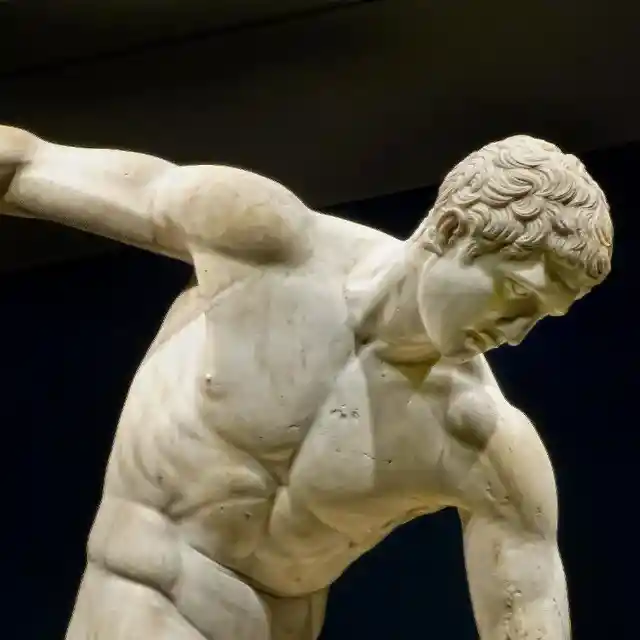
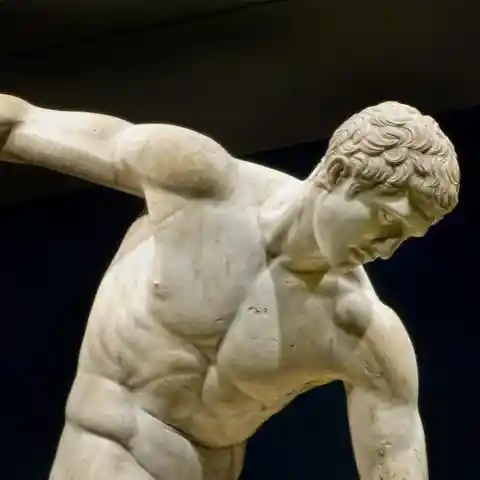
A Loophole in the ‘No-Woman Policy’ of Olympics
Women were not generally permitted to participate in or watch the Olympics, but there was a small exception for the equestrian events when women were allowed to ride horses. The Spartan Princess Cynisca took advantage of this rule to make history for women when she won the competition without even taking part in it. Cynisca was a clear-cut winner thanks to her horses, which took first place in the competition in 396 and 392 BCE.
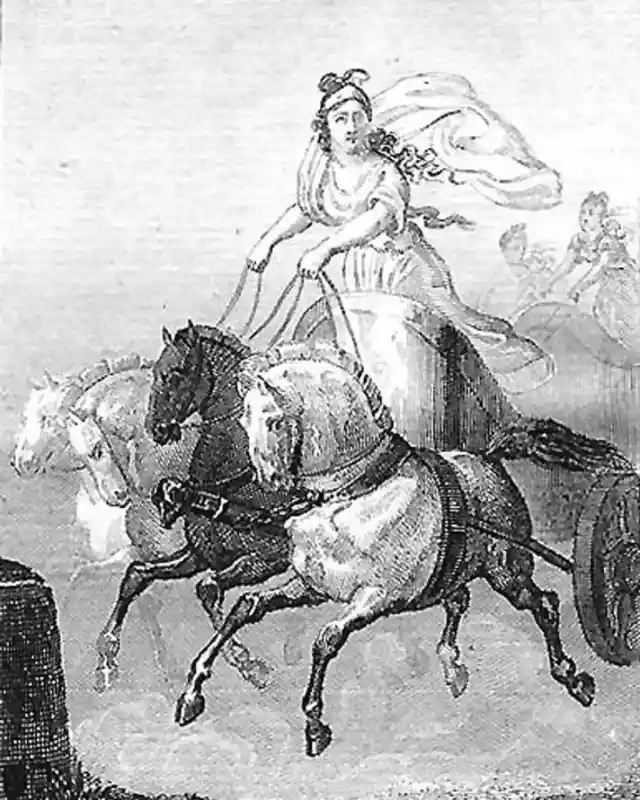
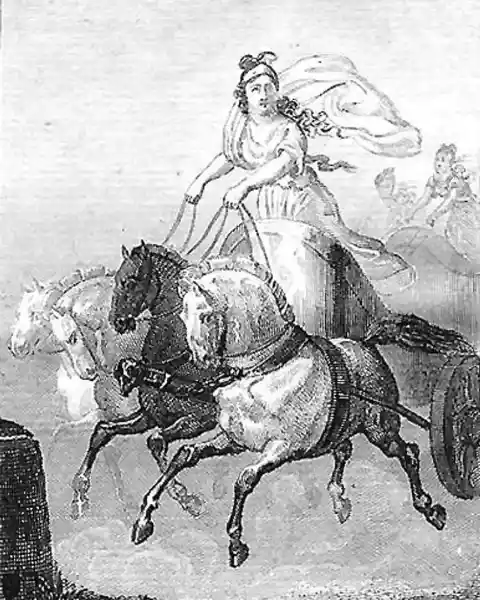
The Olympic Truce
As the Olympics approached, all military conflicts in ancient Greece were put to a halt or rather postponed by three months. This custom, known as the Olympic Truce, was established in 776 BC to protect the host city from invasion during the Olympics. Furthermore, it gave guests peace of mind knowing they would be safe while travelling to the venue of the games. Despite this, the battles continued to rage during that time, just not in the area where the Olympics were held.
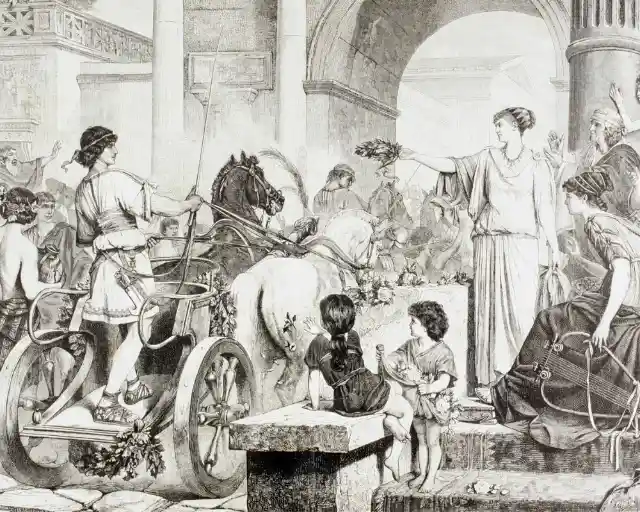
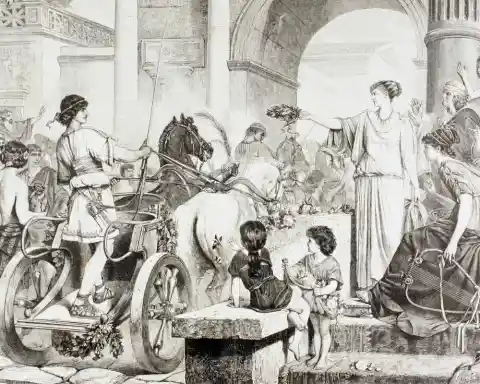
Greeks Had Peculiar Way Of Eating Food
According to popular perception, Greeks chose to lean back while eating. It's possible that this statement is not entirely accurate. In the seventh century B.C., this practice was developed, and subsequently, Romans adopted it.
Greeks are thought to have eaten in this manner because, in society, eating while reclining represented dominance and rank. However, it was made clear that only men were allowed to do so. . In most cases, women were forbidden from attending the feasts, and when they were allowed to go, they were expected to eat while being in a sitting position.
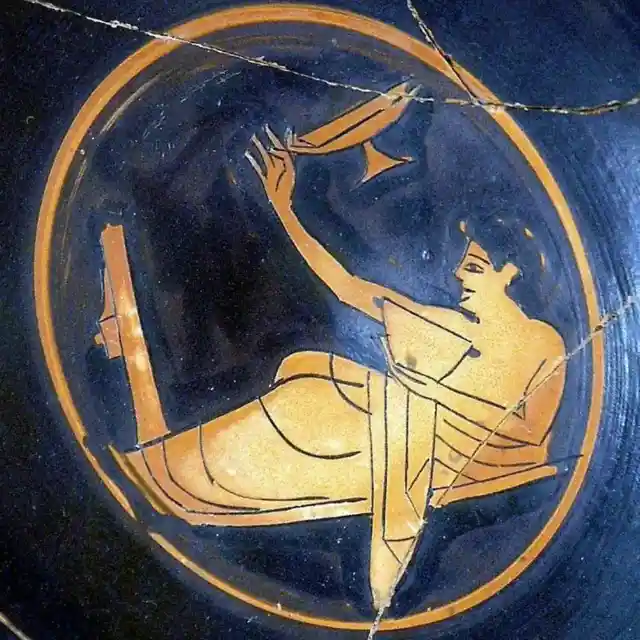
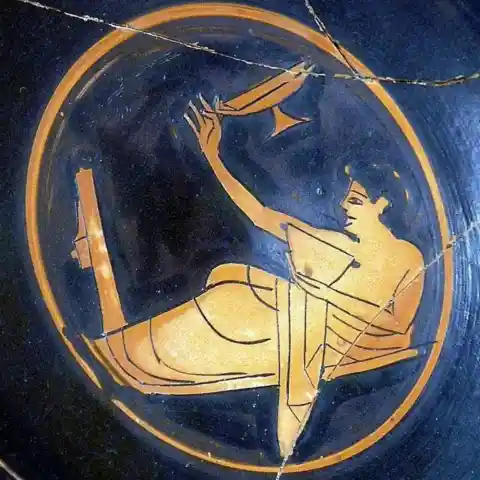
Women Were Considered as Mere Objects
Women were viewed as a pollutant in ancient Greece. They had to rely significantly on their spouses because they had no power and practically no rights. In Athens, women were referred to as an object of a man’s household. As a result, women in ancient Greece frequently had their individuality and entity denied to them. They were instructed to stay inside their home and warned against going out by themselves. Another offence was calling a married woman by her name in front of others.


A Spartan Kid’s Childhood Was a Series of Hardships
It was well known that Spartans were extremely (extremely!) strict with their kids. They had an authoritarian approach to parenting. As soon as a Spartan child turned seven years old, it was a rule that he would be sent off to a special military camp. Additionally, a Spartan boy was not allowed to wear clothing until they aged 12 and had to make do without it. They were also required to prepare their own meals and get training in spear-throwing, swordsmanship, and physical training.
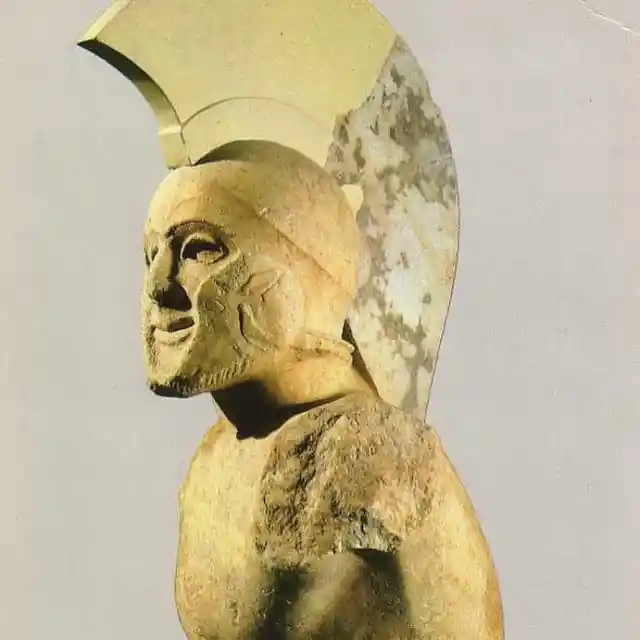
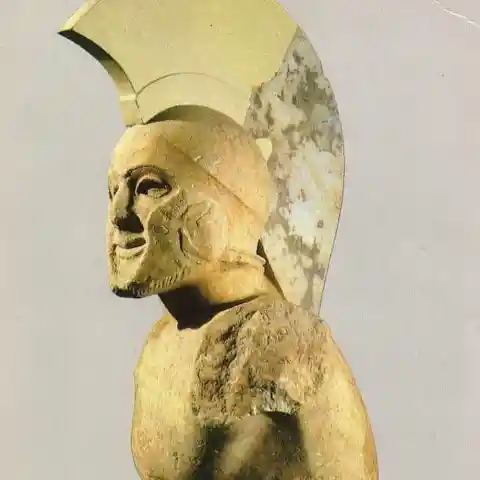
Hair Wasn’t Only Important to Women
Both men and women in ancient Greece saw their hair as a status symbol. Men were quite fond of their thick hair and magnificent beards. The Greeks would compete to see who had the best-groomed facial hair, much like the hipster culture of today. It was considered manly and wise to have a long, well-groomed beard. However, losing their hair was also regarded highly because it was associated with maturity and experience. For this reason, statues of philosophers often have large beards and bald heads.


Spartans Banned Epicuream Meals
Delicacies were strictly forbidden in a Spartan household during ancient times. Remember the blood-soaked lentils. That was the tradition. To put it kindly, a Spartan meal was a simple, unremarkable event. A regular Spartan meal included lentil soup or gruel of barley with cabbage and turnips. Homer claimed that the Spartans loved to eat meals made of grains and that they frequently consumed barley along with wine and goat cheese.


Tasteless Food
The cuisine of the ancient Greeks (Laconian) was very unpalatable. They consumed black gruel as part of one of their daily meals. It was said that it was a mixture of lentils and beef blood. This dish, if you can call it that, served as the punchline to many Spartan jokes and was often linked to the courage of the Spartans. It was claimed that only a true Spartan would have the guts to consume this every day.


They Invented ‘Shaking Hands’
Greeks in a way transformed how people greet one other over the world. They introduced the world with handshakes. Yes, the Greeks invented the handshake, and several ancient Greek paintings, sculptures, and works of art serve as evidence for this claim. Dexiosis, however, was the term used in ancient Greek to describe the handshake. Many works of art show the Greek Goddess of Wisdom Athena and Hera shaking hands. Nevertheless, handshakes were only exchanged between equals in ancient Greece.
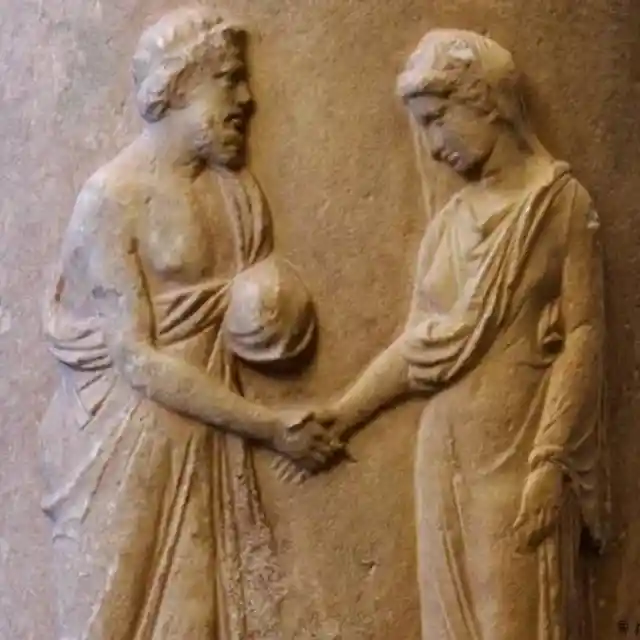
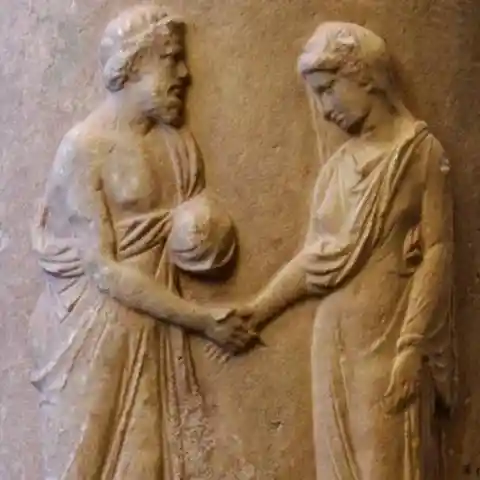
No Clothes Gymnasium
In ancient Greece, gyms were places where people could exercise without wearing clothes, and they were mostly used by adult males. The gymnasiums, which can be described as a "school for naked exercise," lived up to their name and were used by the athletes as a training zone. To show respect to the Greek Pantheon's gods, the ancient Greeks believed that competing in the nude was acceptable. The gym also served as a gathering place for intellectual and social conversation.
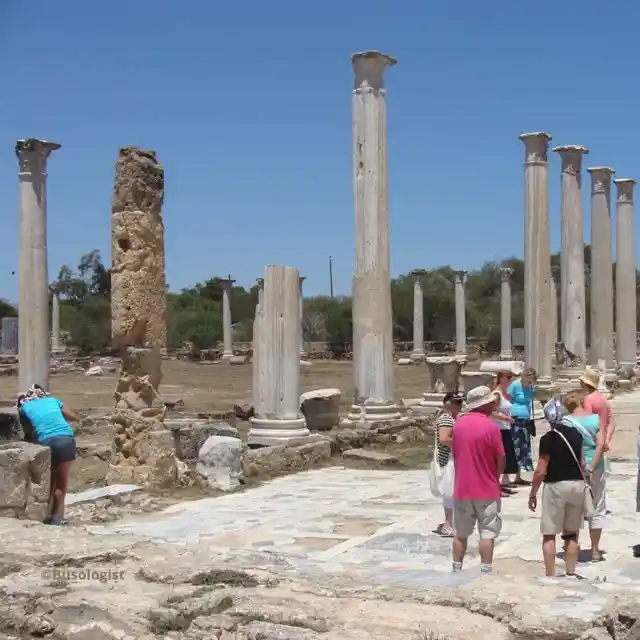
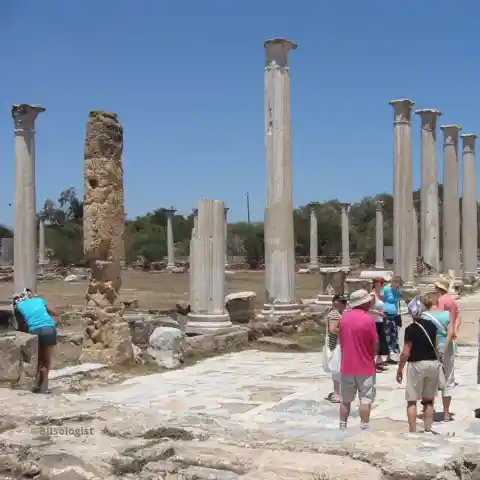
Red Lipstick Had a Different Meaning
In ancient Greece, only specific categories of women were allowed to wear red lipstick (made of red pigments and crocodile excreta). The only people who could wear it were escorts. The flesh trade quickly grew to associate this colour with it. According to Greek law, wearing red lipstick in public was considered inappropriate and may result in severe punishment for any other women except them. This did not imply that the hookers were protected. If they don't wear the right shade for their profession, they risk getting arrested.
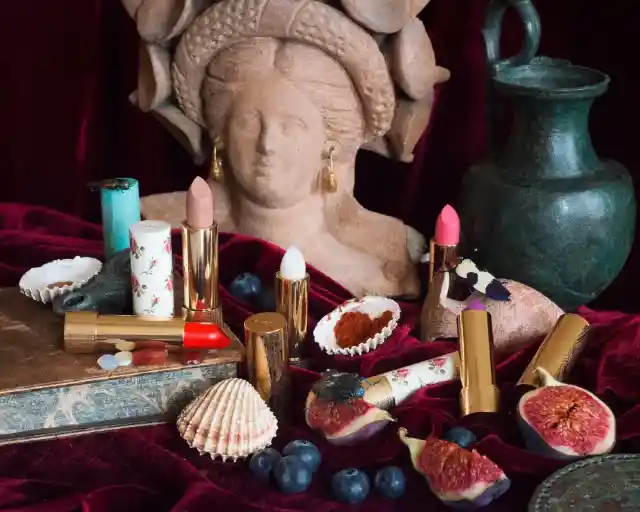
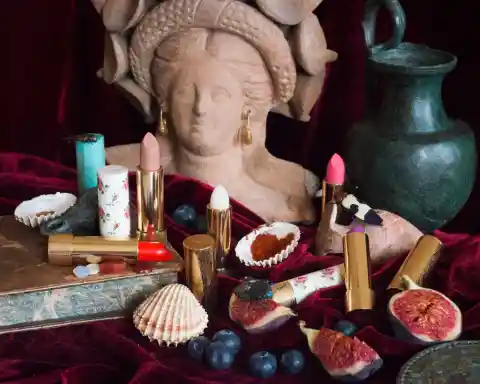
Greek Women Were Quite Fashion Forward
In the past, Greek women were quite versed in fashion. Let's get into more detail. Unibrows and statement brows are indeed popular right now (thanks to Cara Delevingne), but Greek women were the pioneers of this now-dominant fashion. In ancient Greek society, having a unibrow was seen as both a sign of intelligence and an ideal of beauty.
Women who weren't fortunate enough to have unibrows would draw them on with makeup. They created the appearance of a single brow by applying soot, black powder, or goat hair in the centre of their brows.
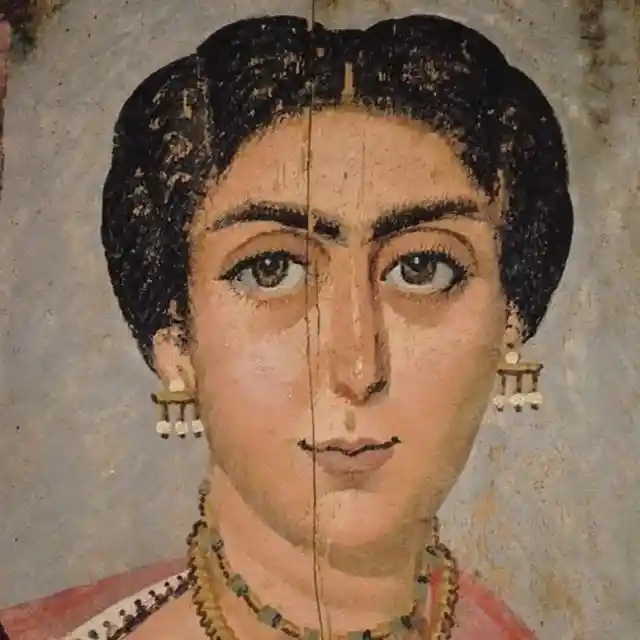
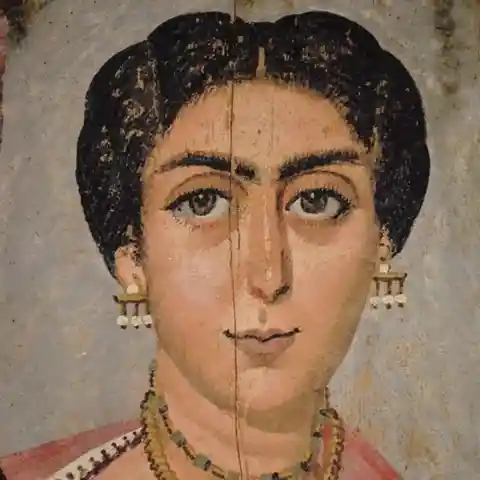
One of the Oldest Scripts in the World
Greek holds the honour of being one of the world's oldest languages. The Greek alphabet started to develop at the beginning of the 8th century B.C.E. It was the primary language used for many notable and influential books, including the Illiad poetry, Aristotle, and Plato's writings.
The Greek language is believed to be the origin of Latin, American, Coptic, and Cyrillic systems of writing. Additionally, the Greek alphabet was the first alphabetic script in history to use clearly defined vowel letters.


They Didn’t Have Toilet Paper
To have triple-ply toilet paper readily available, the ancient Greeks were a few millennia too early. While most societies discovered similar substitutes for our beloved paper, the Greeks had a peculiar tool for the job. While the majority of the ancient world was believed to have used leaves, wool, sponges, and other similarly soft materials, the Greeks chose to use stones, ceramics, and pebbles instead. When nature calls, it is obvious that beggars cannot be choosers.
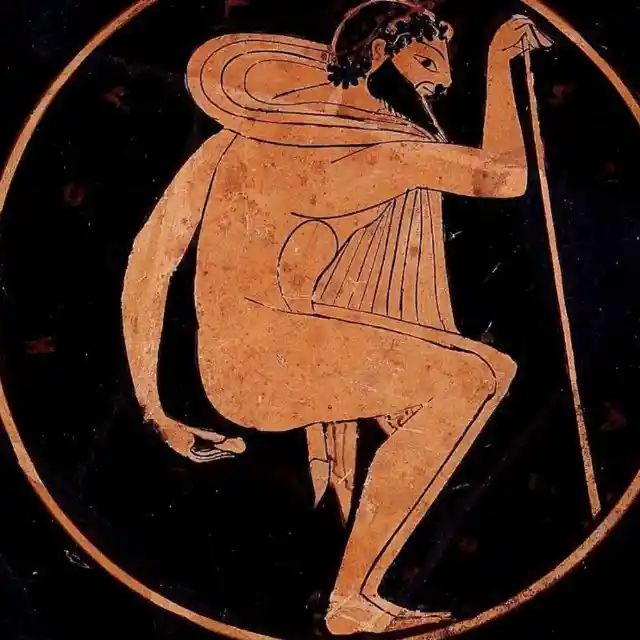
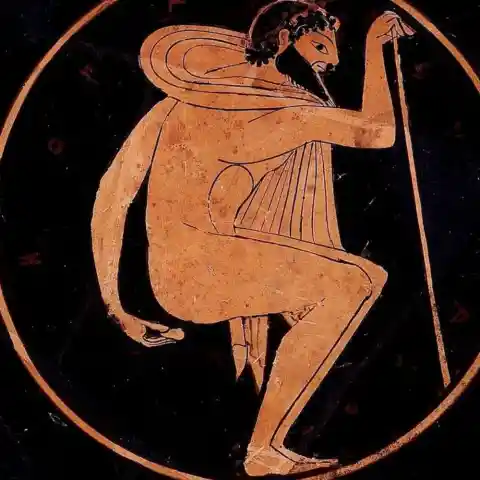
Dionysus Was One of Their Beloved Gods
In ancient Greek mythology, Dionysus, also known as Bacchus, was one of the most revered and well-known deities. He as well as Demeter was regarded as the two most important gods on Earth. Dionysus was known to be the "God of Wine" because of the narrative that he was born from fire. He was titled as the god of grape, harvest, and fertility too. To pay their respects, several tragic and humorous plays were staged.
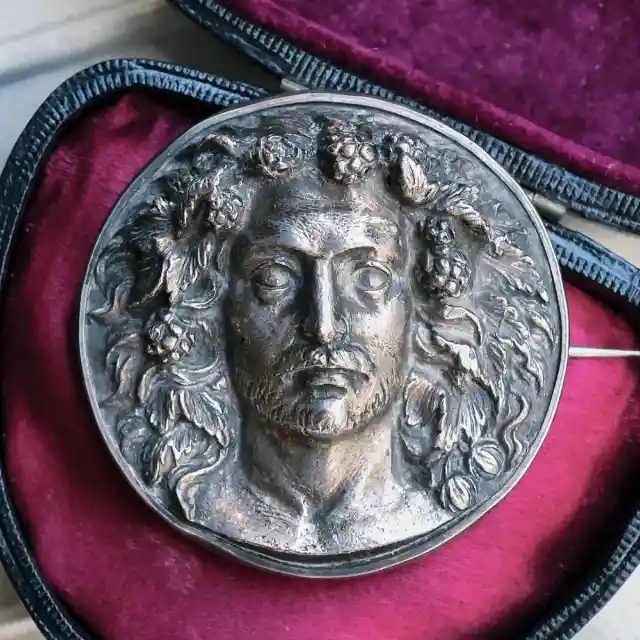
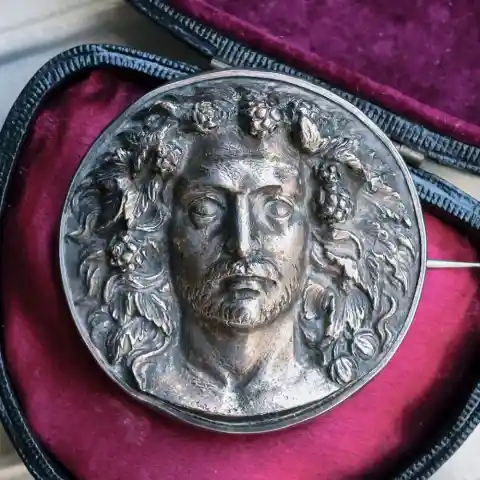
About the Greek Gods
As mentioned in Greek mythology, Zeus is recognized as the most powerful god in the Greek Pantheon. However, this fact is only partially true. Ancient Greece was divided into numerous sovereign nations. Each polis in ancient Greece had its own distinct cult.
The ancient Greeks followed henotheism, which is the practice of worshipping one deity from the pantheon of gods while remaining open to the possibility that there are other gods as well. This was done despite their strong belief in an ‘n’ number of gods.


Greek Messed Up Royally
Many heroes and figures from ancient Greece participated in unethical behaviour. Even the pantheon of gods, who we could never have expected, ended up doing some horrible things occasionally. It is emphasized that not only Gods like Uranus, Athena, Zeus, Hades, and Jason committed some truly awful crimes, but so did ordinary people.
For instance, Achilles left his allies following a disagreement in the middle of the Trojan War. Heracles was rumoured to have multiple lovers apart from having four wives.
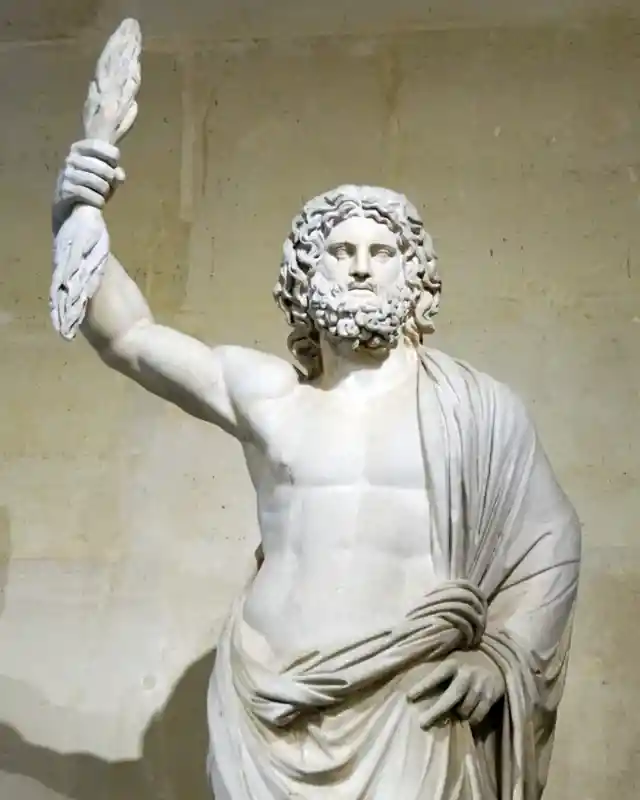
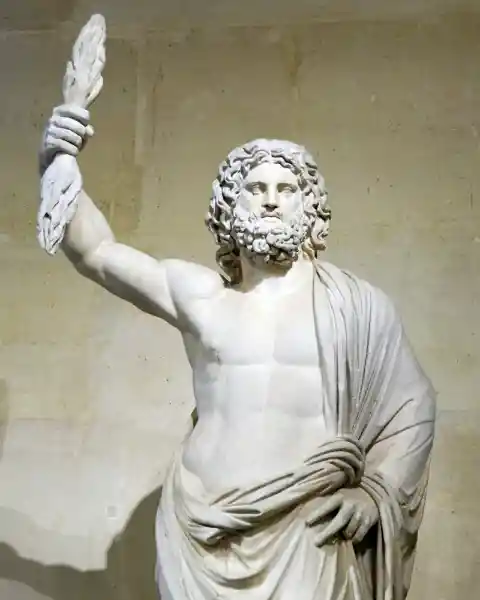
Of Hetaeras
In general, women in ancient Greece were considered second-class citizens and held a lower social position than men. There were, however, some females who could stand on their own two feet. These women were classified as hetaeras.
Hetaeras were essentially high-profile escorts who also engaged in the practice of mind-stimulation. Unlike pornai, which was another class of escorts in ancient Greece, they had a few but rich lovers. A woman had to attend a special school from the time she was a little child to become a heatera.
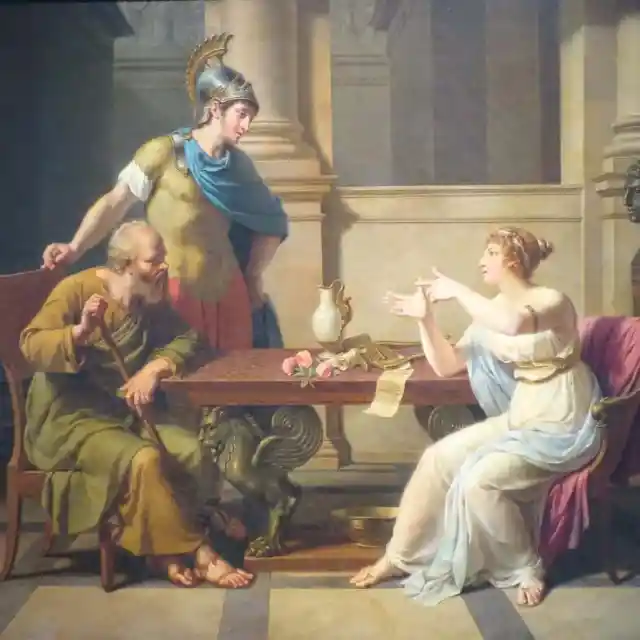
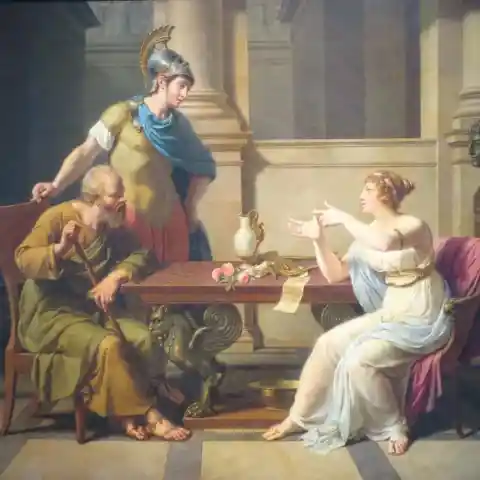
Greeks Were (Very) Messy
The ancient Greeks did not adhere to the notion that cleanliness is next to godliness or that their homes should be Marie-kondoing. Instead, they purposely kept their spaces as dirty as possible. The black smoke that continuously emerged as they prepared meat for their meals usually darkened the walls of their house.
In Horner's poem, he talks about how the soot in a normal Greek home destroyed the weapons that were hung on the walls. To put it in simple words, black walls were common in an average home at the time.


Symposiums: The Hallways of Gaiety
Symposiums were another male-dominated area in ancient Greece that was characterized by bacchanalian revelry. These banquets were exclusively for men and it featured dancing, music, and other types of celebration. A symposiarch, who served as the evening's in charge, was responsible for running a symposium. There were several competitive games planned in this social setting to make it enjoyable for the men. However, the use of the word "symposium" in current times has changed to an intellectual gathering.
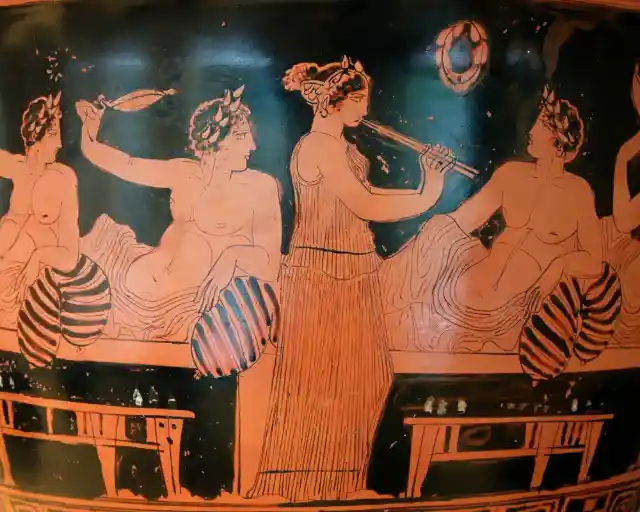
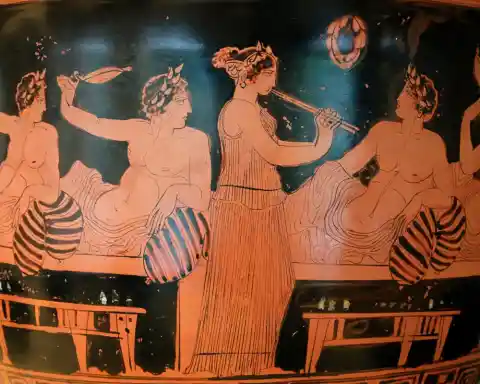
Spartans Knew How to Dress Up for War
The Spartans were quite knowledgeable about appropriate battle attire and ensured that they carried a lot of equipment and protective gear in a war. Before heading for a kill, a Spartan soldier, also known as a hoplite, wore a breastplate, ankle guards, and a bronze helmet.
They also held a long spear, a sword, and a spherical shield, which was made out of wood and bronze. As seen in the movie 300, a Spartan soldier generally had long hair and wore a red cloak as their primary form of clothing.
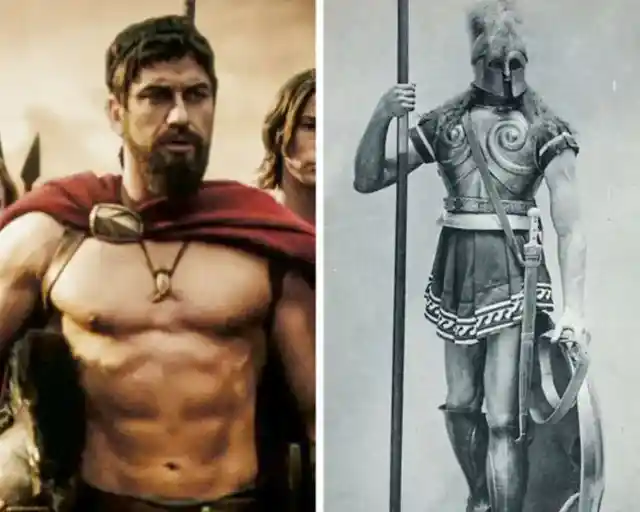
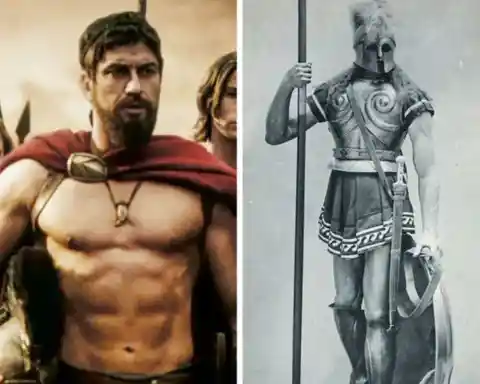
Before Spartans, There Was the Sacred Band of Thebes
The Spartans earned the reputation of possessing tremendous courage, endurance, and self-control. With the release of the film with the same name, The 300 Spartans, which was based on the Battle of Thermopylae, has become a part of popular culture. Although the Spartans were difficult to defeat, the Sacred Band of Thebes ultimately prevailed in the battle. The group of 150 lovers who were all members of the band brought an end to Spartan's prominence. The Battle of Leuctra in 371 B.C. brought the band to fame.
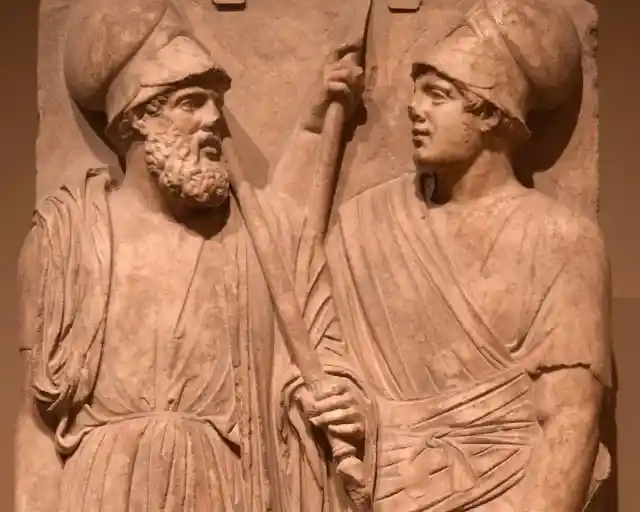
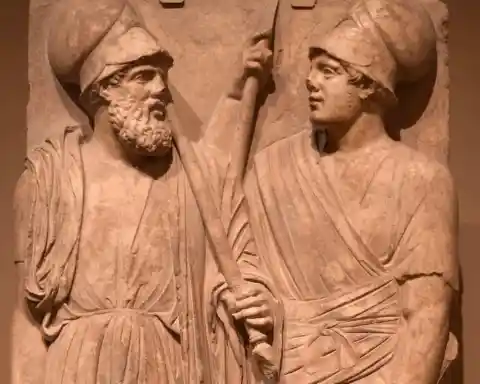
Rhodopis Inspired Cinderella
Rhodpis was a popular hetaera in ancient Greek culture. Her story gave rise to the craze for the fairytale Cinderella. According to legend, an eagle grabbed Rhodopis' slippers while she was taking a bath and immediately dropped them upon the lap of an Egyptian pharaoh. The Pharaoh was so taken with the slippers that he decided to send out a search team to find its owner. His search brought him to Rhodopis. Finally, they got married, and Rhodopis was crowned queen of Egypt.
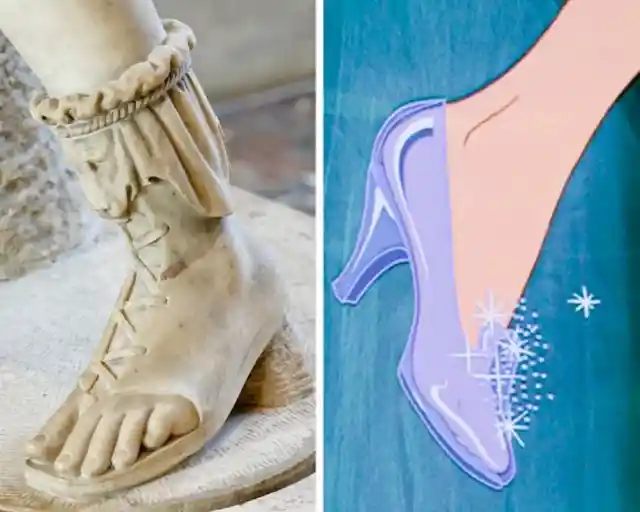
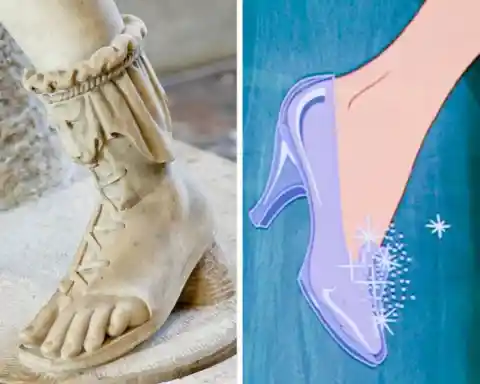
Ancient Greeks Were Paid Well
In comparison to other civilizations, the ancient Greeks received generous pay each month. Ancient Greece reached its pinnacle of economic growth between the fourth and fifth centuries B.C.E., making it the most advanced nation on earth. The salaries of the average person are evidence of economic growth. At that time, the average Greek citizen made 12 kg of wheat. When compared to the standard Roman wage of 3.75 kg of wheat per month, this was approximately four times more.
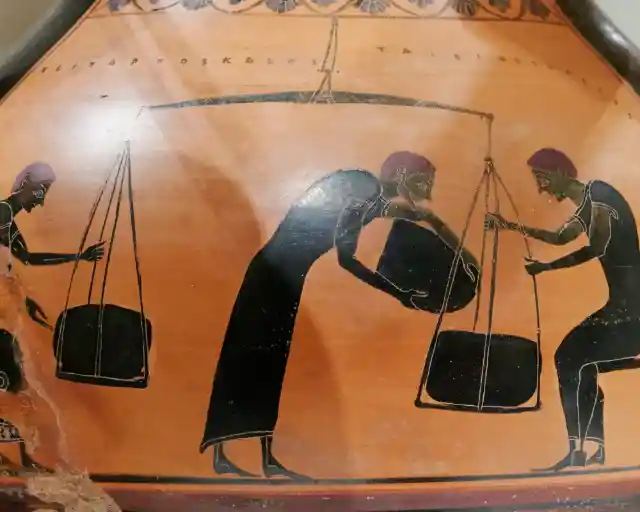
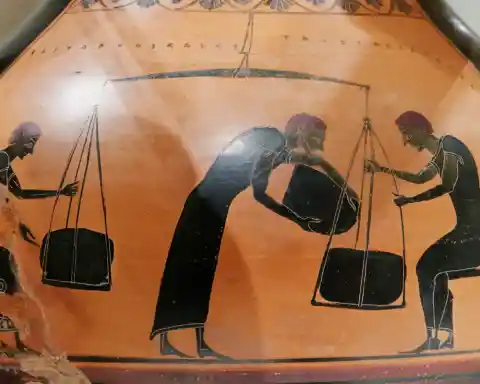
Spartan Women Were Freer
It is hard to overlook the appalling state of women in ancient Greece. However, when we look at Spartan women's conditions, we can see a slight difference. They had more freedom than their Greecian counterparts. They had some privileges and freedoms that were not available to the rest of the woman population.
A woman in Sparta could own land and participate in sports. Another advantage they had was having access to education. Even if they had to help out around the house, the benefit of being more independent than their Greek counterparts overshadowed this.
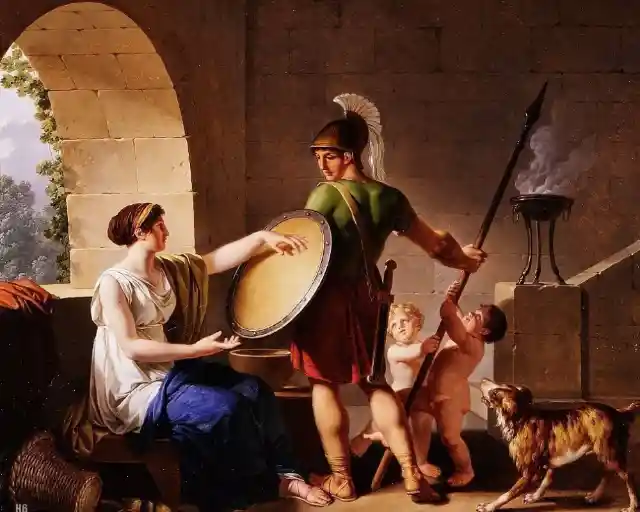
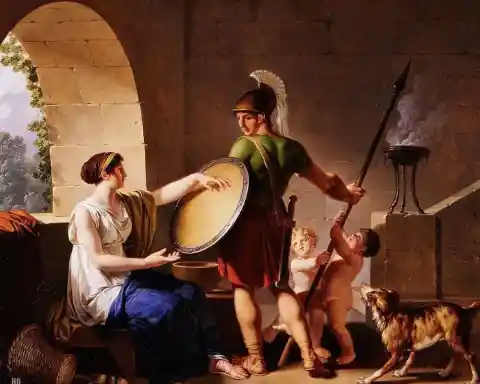
The Marital Lives of Spartans
In Sparta, people strongly believed in having arranged marriages. There weren't many love marriages. Again, the majority of marriages were fictitious in the sense that men frequently had many partners. Cheating on your spouse was seen as completely normal.
Ironically, any Spartan who chose to remain single would face severe punishment. The legal system was set up to force children into marriage as soon as they reached a certain age. Those who waited until later in life to get married were also not exempted.
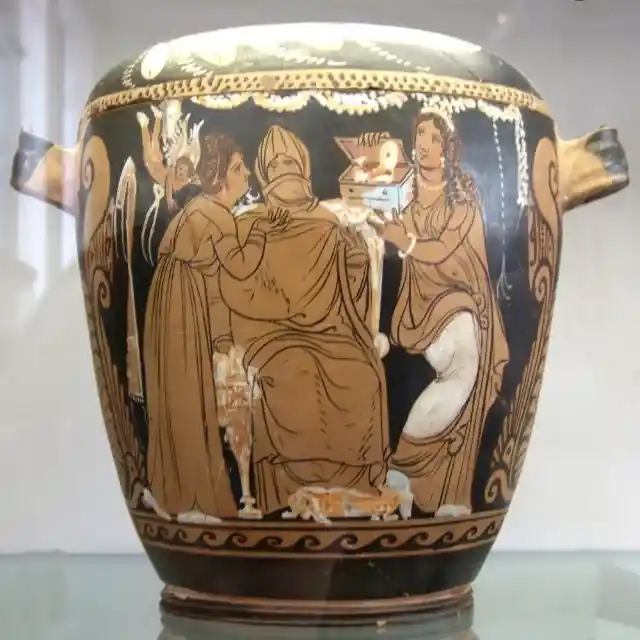
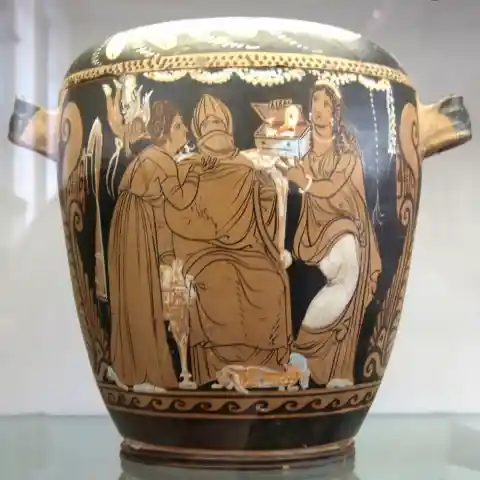
Greeks Knew the Worth of ‘Salt’
Greeks were prompted to use salt for trading when they observed their Roman counterparts doing so. As a trade for salt, they used to purchase slaves. They adhered to the saying that you shouldn't trust a man until you had shared a salt peck with him.
In Greek, the term "alas" means salt. The expression "not worth his salt" was also said to have been created by the Greeks. They also used salt combined with animal fats and ashes to produce soaps and detergents.
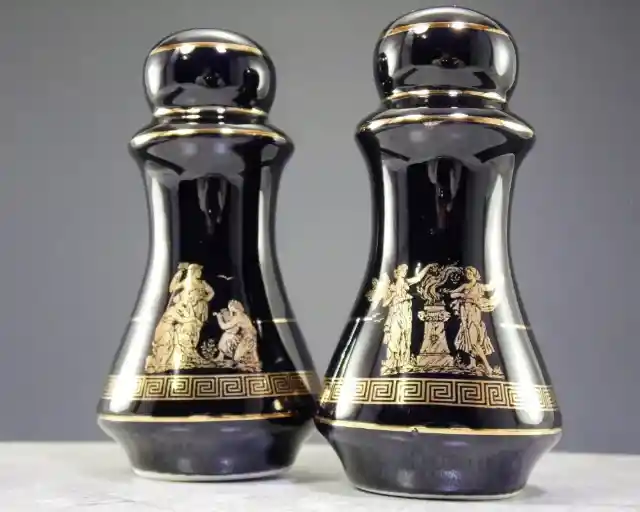
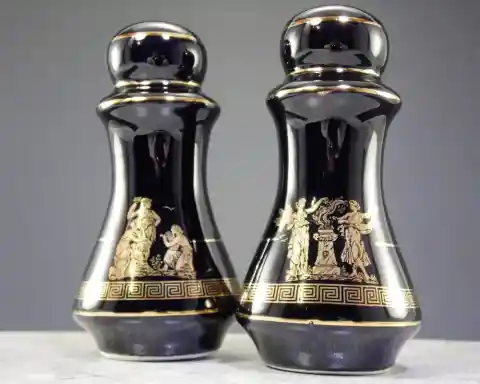
They Invented Yo-Yo
While the Greeks take pride in the fact that their language is one of the oldest in the world, they are also the home of some of the world's oldest innovations. The yo-yo is one such creation. The yo-yo is thought to have been created in 440 B.C.E, which makes it one of the earliest toys in existence.
A yo-yo was made using wood, metal, or painted clay disks, and pictures of the gods from the Greek pantheon were used to decorate it. It was found in almost every household in Ancient Greece
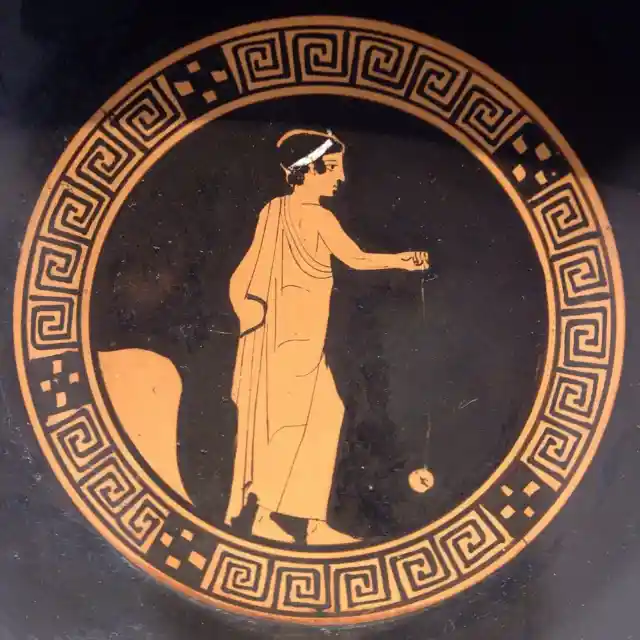
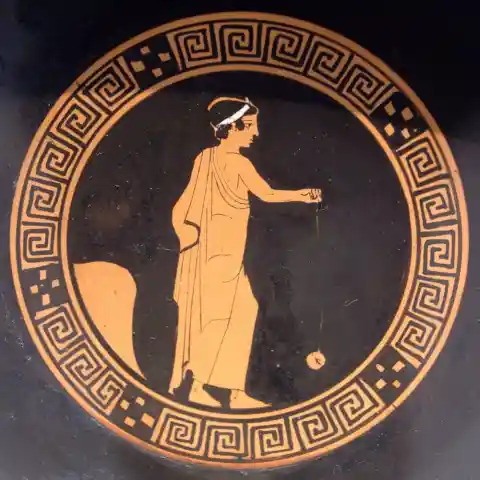
Olympiad Was an Anticipatory Event
In ancient Greek culture, the Olympiad was an important occasion. There were a lot of folks there, and it was highly awaited. The Olympics were so cherished by the ancient Greeks that they built their social calendars around them. The event took place once every four years in July or August. As was previously mentioned, the Olympiad was followed by an Olympic truce, a declaration of peace that delayed war in the host country for three months.


They Believed in Taking Siestas
The ancient Greeks were a laid-back group of individuals who valued a mid-afternoon nap much like any other human being. It was a usual routine to take a power sleep in the afternoon, especially during the summer. according to a Greek theory, a mid-afternoon nap could keep the body from drying up. After a refreshing nap, the Greeks treated their stomach to delicious food and continued working until dusk. We also believe that afternoon naps need to be mandated by legislation.
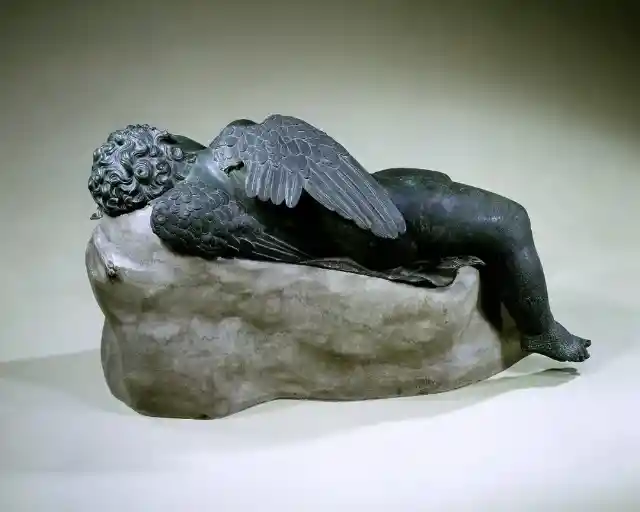
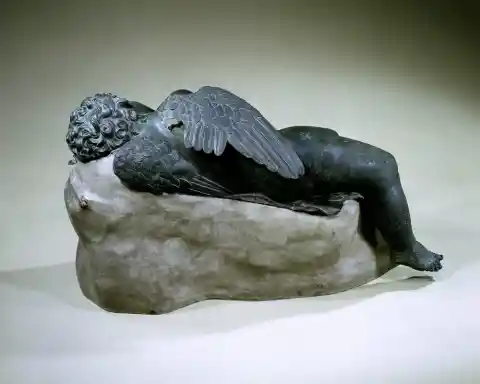
They Created the Word ‘Idiot’
The word "idiot" originates from the Greek word "idiōtēs," which described a private person. The word was initially used in a very different situation and context. When the term first surfaced, it was used to describe people who avoided politics.
Ah, the Greeks loved politics so much. Regardless, the word has evolved in the world to the point that it is now used to characterize someone with a low IQ level. If you're smart enough, you'll make the connection between its previous and present meanings and recognize the message it is trying to convey.
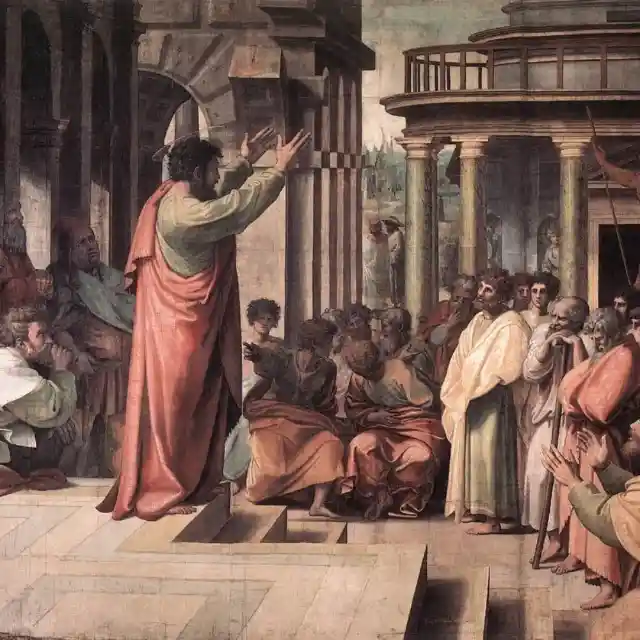

They Gave ‘Music’ to the World
We should be grateful to the Greeks for introducing us to the world of music. At least in the written form! According to Greek mythology, the Muses, the goddess of the arts, is where the word "music" originates. Greek music laid the theoretical and compositional foundation for western music. To acquire insight into other aspects of life, it was also studied by well-known philosophers like Pythagoras.
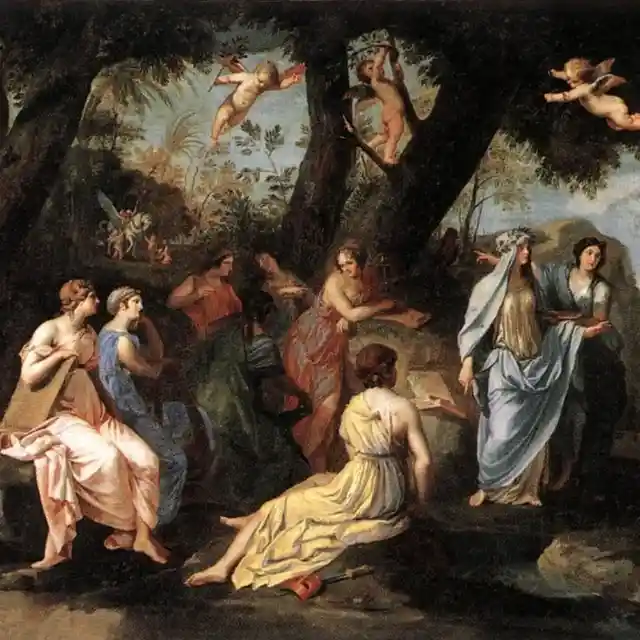
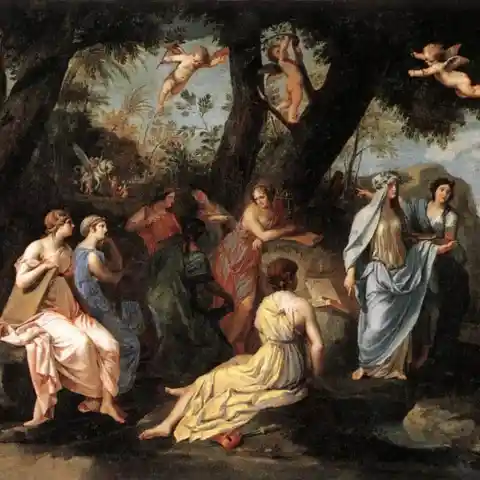
Who Wants Cheesecakes?
It might be difficult to comprehend that the Greeks were big fans of sweetness after learning how they made their bean stew. In fact, the first cheesecake was prepared by the Greeks! They used flour, wheat, honey, and, of course, cheese to make their version of the popular cake.
The rich, sweet cakes were a traditional way to celebrate weddings in elegance. What was more interesting was that cheesecakes were offered to athletes as energy snacks during the Olympics. That's one custom we should surely revive!


Throwing Apples Was a Declaration of Love
Depending on how you look at it, the way men proposed to women in ancient Greece was both cute and subliminally violent. Greeks threw apples at people to ask for their hands in ancient times. In a few cases, these apples gave rise to arguments. The apples were also tossed toward married couples to wish them a lifetime of happiness. On a different note, Newton developed the laws of relativity after being hit by an apple. Just, saying!
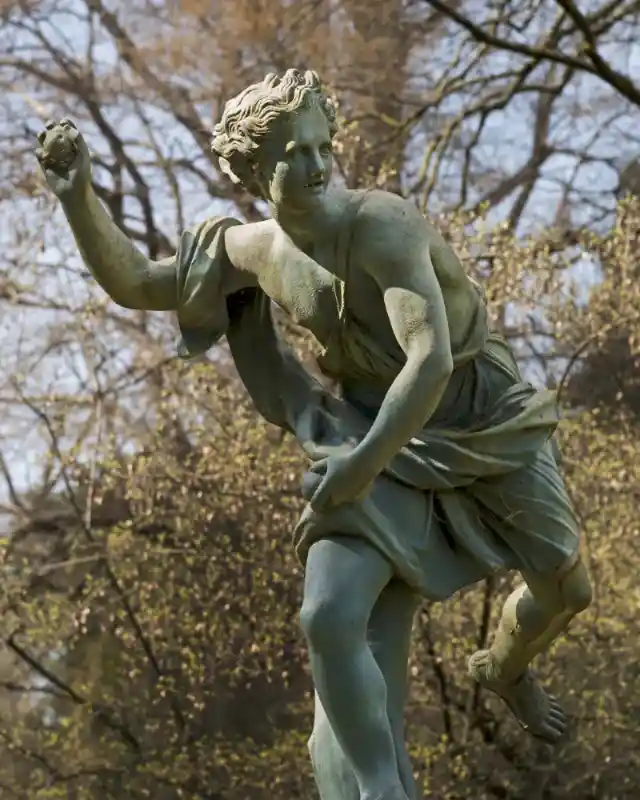
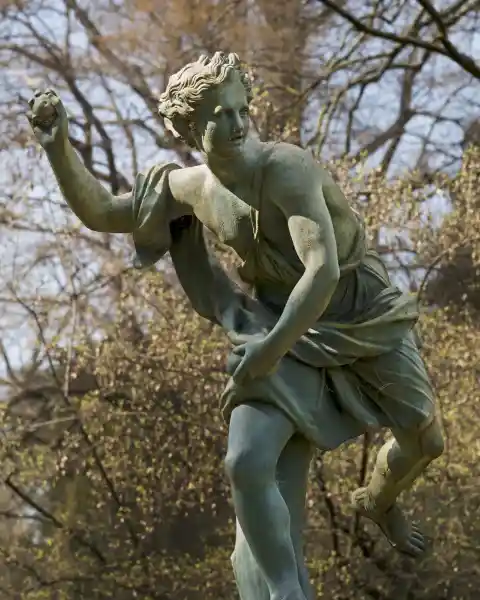
Potbelly Was a Preferred Body Type
In contrast to today, Ancient Greece did not favour washboard abs, an iron-pumped body, or that kind of muscle. Instead, the dad body was trendy, and the pot belly was seen as a legitimate body type and shape rather than an extra reserve of body fat. Nor was a person with a potbelly associated with being a glutton or a sloth.
It was the other way around. Those with the potbellies were regarded as excellent leaders. We don't mind using a body standard from the past in this situation. Cheeseburgers must be served immediately!
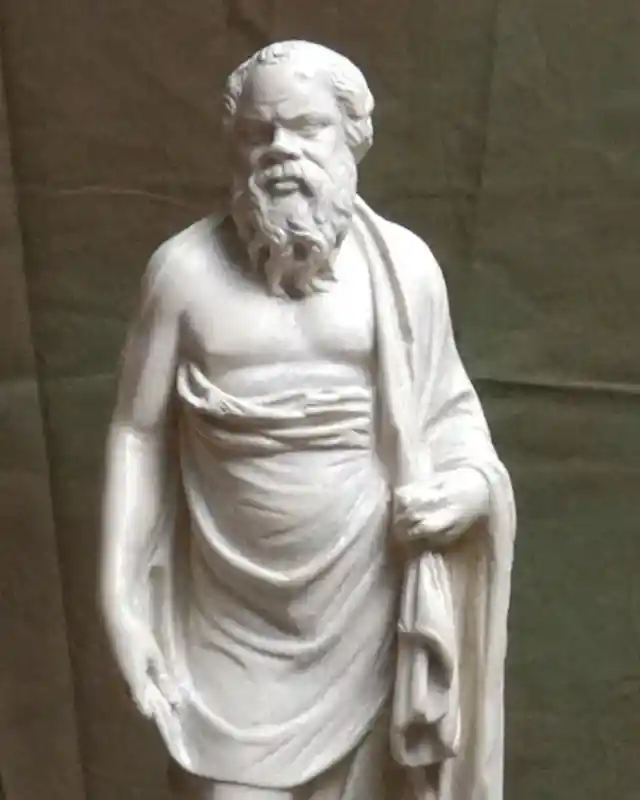
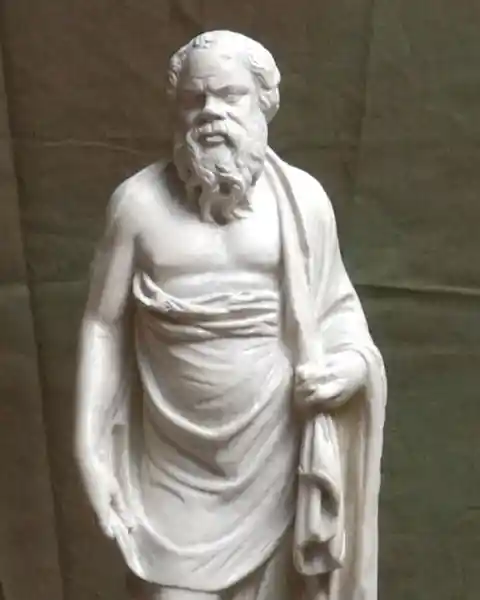
They Invented Spiked Dog Collars
The ancient Greeks came up with spiked dog collars. However, their original use was for something else. Although the earliest dog collar design was developed by the Egyptians, the Greeks were acknowledged for improving it for practical use.
In ancient Greece, these spiked dog collars also known as mellium were worn by the sheepdogs on the farm to safeguard their necks from a wolf attack. It appears that the innovation was spurred by a need to protect farm animals, especially vigilant dogs, from frequent wolf attacks.


They Lived Long
A lot of ancient Greeks were fortunate enough to have lived a full century of their life. They had an excellent sanitation system, and nutritious Mediterranean cuisine and they engaged in intense daily physical exercise, all of which contributed to their long lives.
According to the Greek understanding of the Mediterranean diet, there should be ample consumption of fruits, vegetables, and olive oil, also known as the "elixir of life." It had a lot of positive effects on the system, such as lowering the chance of Parkinson's, increasing longevity, and reducing the likelihood of Alzheimer's.
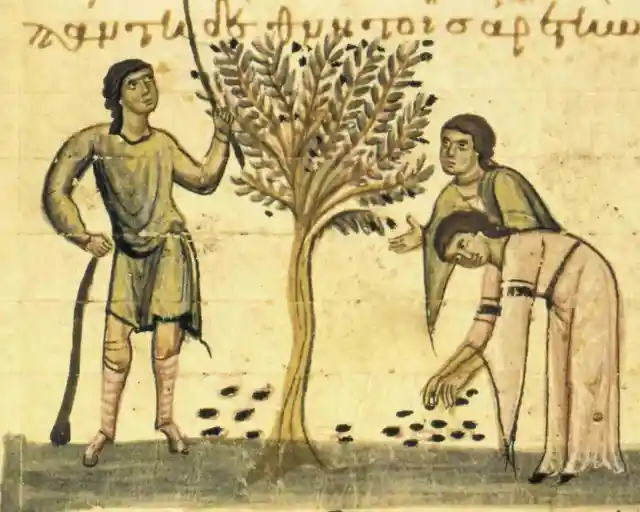
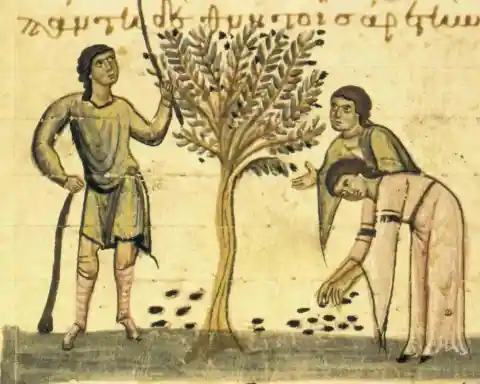
The Boustrophedon Text
Manuscripts were frequently written in both directions in ancient Greece. This indicates that after writing a line of the manuscript from left to right, the next line would be written in the opposite direction. They also involved mirroring letters from one line to the next, which increased the level of confusion for both readers and authors. Here’s one example: I adore everything about Greece. Greece about everything adore.


They Invented Vending Machine
On the list of so many inventions, the other one is the world’s first vending machine. However, there were no chips or sodas available from this vending machine. it was a coin-operated vending machine to dispense holy water. As per the findings of the researchers, since the Greek civilization was one of the first civilizations to use coins, this vending machine was a development of it. However, it ended up serving as the model for every current vending machine.
Melons, Beyond Fruits
Melons were a cipher word used in ancient Greece to refer to certain female anatomy parts as well as to describe the fruit itself. Other than that, it was a general word for all fruits that were or appeared to be alien. A term for different gourds bearing fruit is mēlopepon in Greek, which translates as "gourd-apple." Therefore, depending on the context in which it was used, this word might indicate a variety of things.


More Power to the Citizens
Ancient Greek citizens were incredibly powerful in a civic sense. They created a system that enabled them to unite as a cohort and exile a politician for ten years. Its goal was to protect the foundation of democracy and was known as ostrakismos. Ostrakismos was a type of retaliation used against all politicians who were at the time seen to be both a real and potential threat to Greek democracy. We think it's awesome!
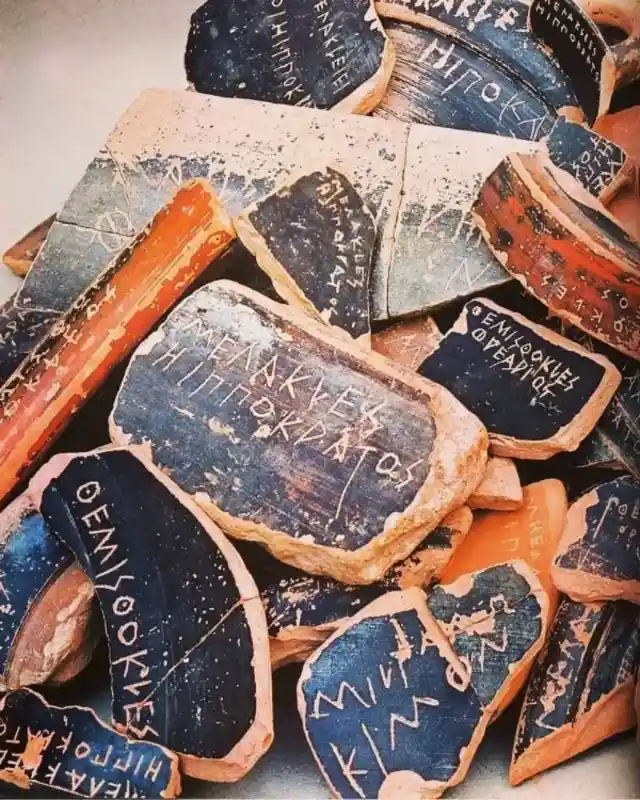
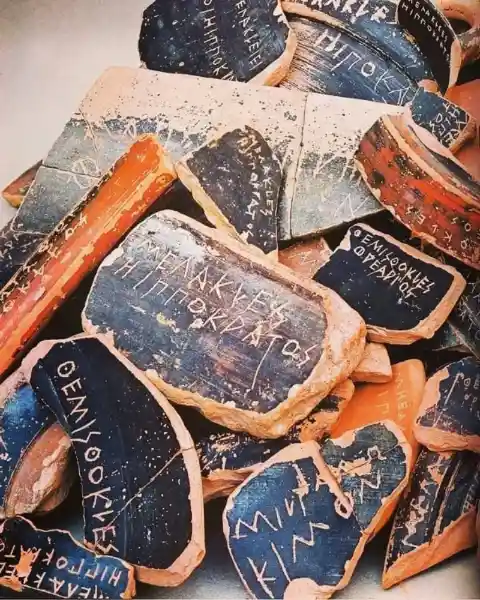
They Invented Kettlebells
The inventions of the ancient Greeks were endless. When they ran out of goods or tangible objects to build, they turned to creating words and phrases that are still used today. For example, the kettlebells. A prototype for the kettlebell, the Greek Haltere, was discovered to have been used in 5th-century Greece to push athletes in the long jump.
According to the information provided by the researchers, these kettlebells weighed between two to nine kilograms and were used in Olympic competitions. However, a kettlebell at The Archaeological Museum of Olympia in Athens, Greece, weighs about 144 kg.
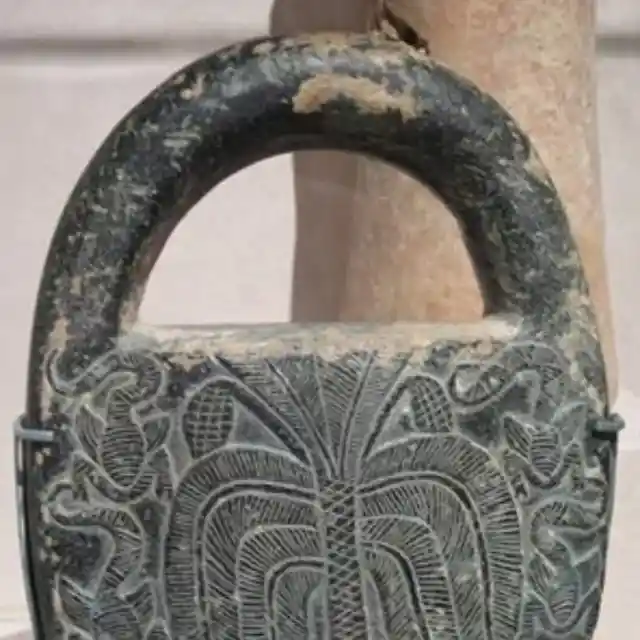
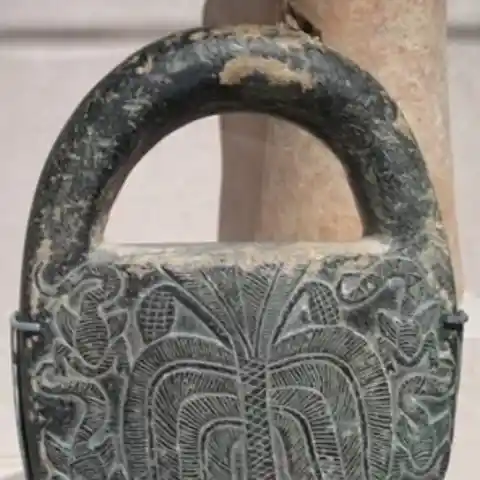
Their World Was Colourful
It appears from reading ancient texts—particularly those by the well-known Homer, author of the Iliad and Odyssey—that the ancient Greeks had a different understanding of colour than we do. Or, at the very least, they discussed it differently. Mark Bradly, an expert on ancient history at the University of Nottingham, claims that the Greeks viewed colour as the visible outside shell of an object. In this manner, the fire was fire-collared, the sky was sky-collared, the skin was skin-collared, and so on.
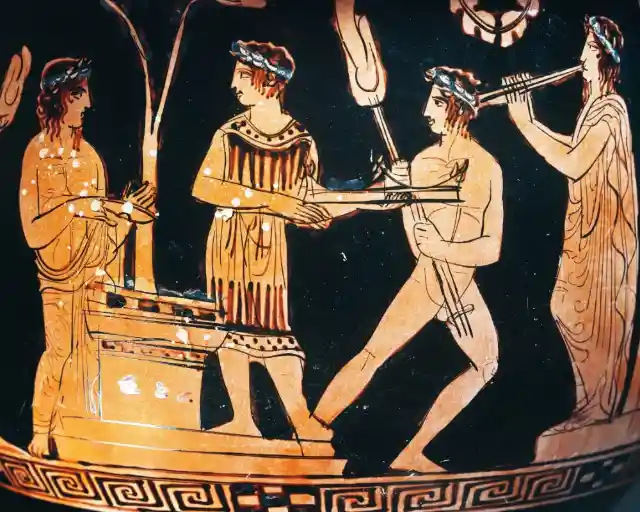
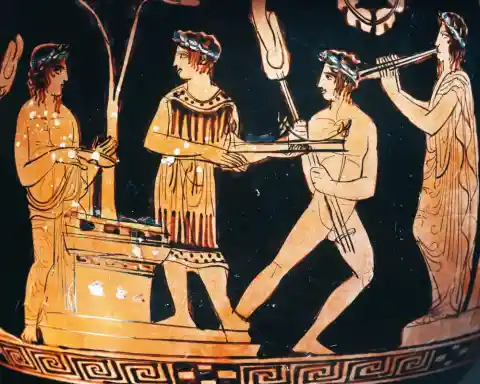
Timing Was Everything
Even though it can sound quite bizarre to us now, The Greeks had two separate words to express various aspects of time. The first one is Chronos. It behaves a lot like the way we normally see time in our own lives. It can also be thought of as measured time, like a clock. The second is Kairos. Instead of counting seconds, it counts moments. To be more precise, It discusses the appropriate or ideal time for anything. it is explained that- As the world holds its breath, anything can change, including destiny. Quite intriguing, right?


Greek Statues Were Very Colourful
Beautiful Greek statues have long served as a status symbol for the wealthy and distinguished. They are looked upon as the epitome of artistic expression because of their exquisite white stone. They were in fact so well acclaimed that Renaissance sculptures made an effort to imitate the design.
However now we know that Greek statues were richly painted with vibrant colours and elaborate designs thanks to modern imaging technologies. We get a glimpse of how vibrant these statues were because of historical and archaeological reconstructions.
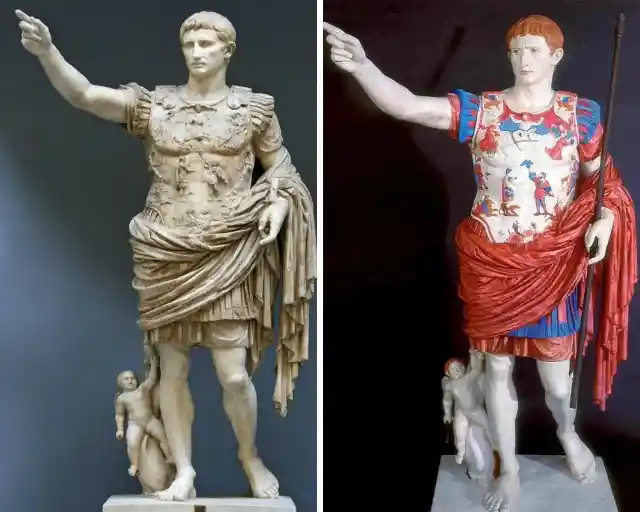
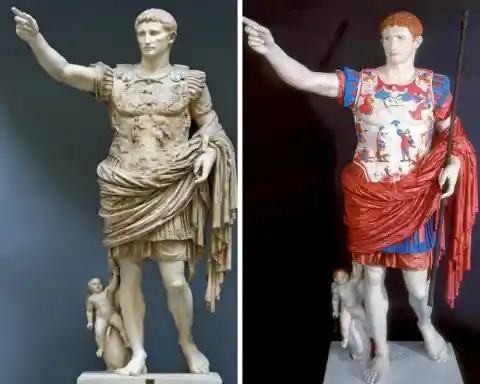
The Greeks Created the First Computer
Although modern digital computers weren't invented until the 1970s, analog computers have existed for a lot longer. In fact, Ancient Greece was the home of the first computer. The amazing hand-operated machine was given the name Antikythera Mechanism in honour of the shipwreck where it was discovered.
The machine, which was assumed to have been built in the second century BC, was used to predict astronomical locations and eclipses decades in advance. In addition, it used gears, making it extremely complicated for the time. Only in the fourteenth century did machines of this kind reappear!
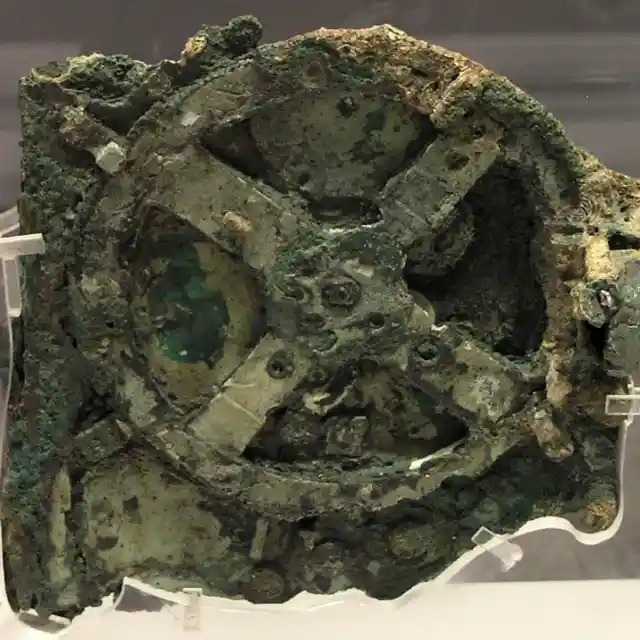
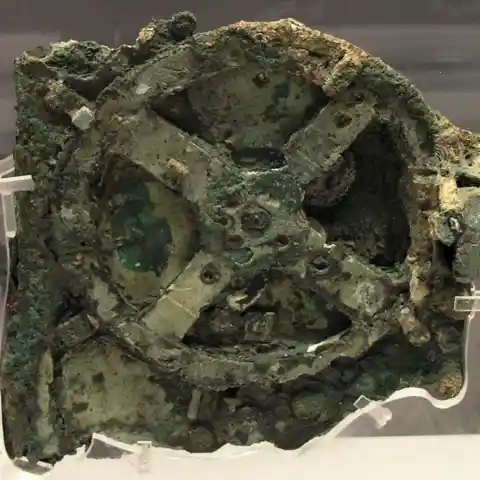
They Gave Us the Theatre
Although the Greeks were not the first civilization to value the art of storytelling, they were the first to develop an entire cultural movement cantered around it. Numerous plays were written and produced by Greek theatre organizations; some of them are still being played today!
The amphitheatre’s smart architecture played a role in the theatre’s success since it was designed in such a way that even people sitting far from the stage could clearly hear the actors.
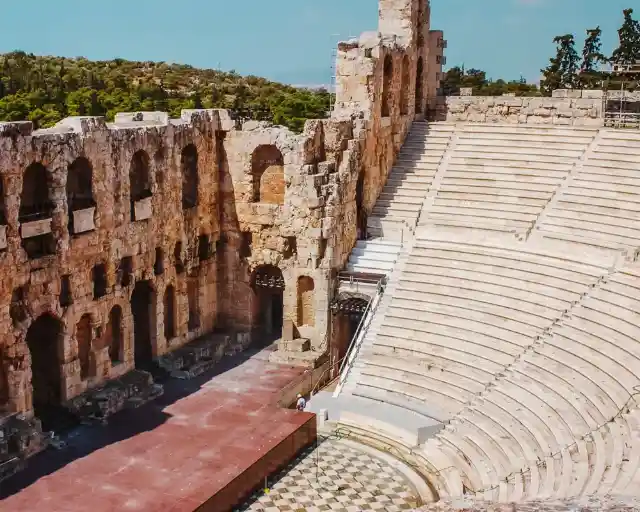

The Word Lesbian Came From Greece
The third largest amongst Greek islands is the Island of Lesbos, whose name is derived from the Greek word for forested (or woody). However, the island is not famous for that. It is best known as the place where the word "lesbian" was first coined. Sapho, a Greek poet who was born on the island, deserves credit for this.
Sappho was a very well-known poet at the time; Plato famously referred to her as the "Tenth Muse." Even today, people study and read her poetry, which is focused on a woman lover. She is also acknowledged for popularising the phrase "sapphic love."
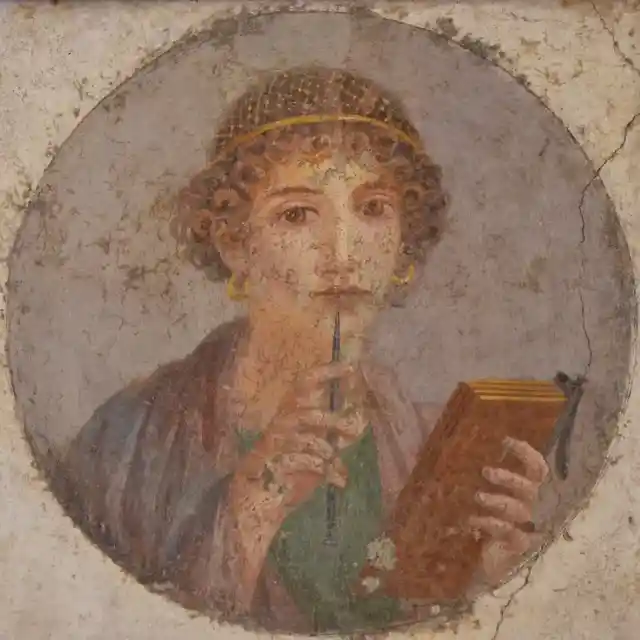
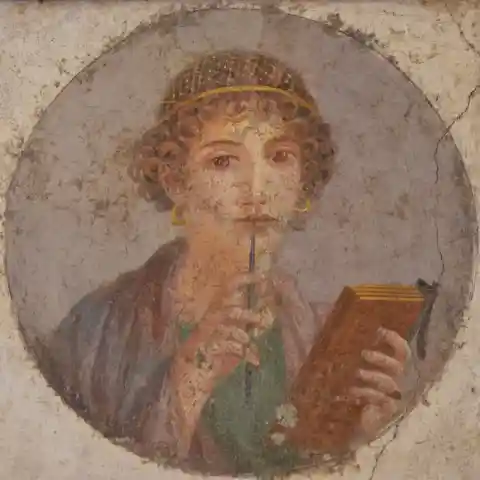
The Earth Was Round to Them
There were many scholars in ancient Greece who were interested in mathematics, astronomy, and geography. So, in contrast to common belief, they were aware that the Earth was a sphere that spun through space. The first person to calculate the circumference of the world was Eratosthenes of Cyrene, who is famous for doing so.
Since he had previously worked as the chief librarian at the renowned Library of Alexandria, he had access to extensive survey results, which he used to find it. Thanks to his geographic expertise, he was also the first mathematician to produce a worldwide projection of the globe.
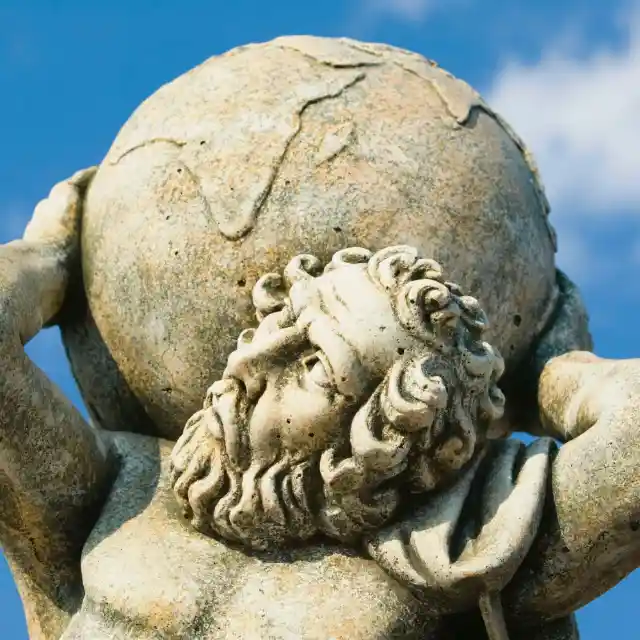
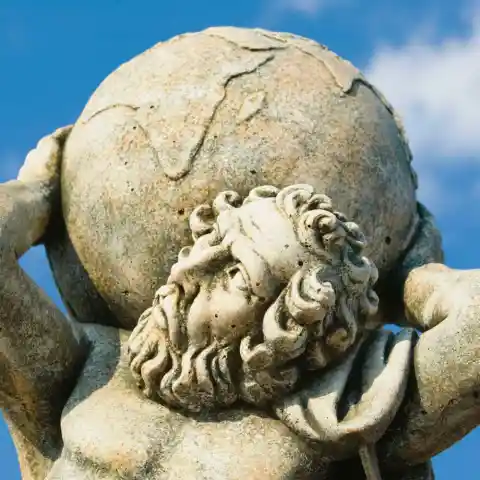
Thou Shalt Drink Wine Like This
A social faux pas today would be to drink a full glass of wine while also holding the glass by the body, but in ancient Greece, drinking concentrated wine was frowned upon. One was supposed to pour water into their glass in a 3:1 ratio. People who didn't add water to their wine were labeled as alcoholics and morally void. . However, the strong mixes were only used on special occasions that called for celebration.
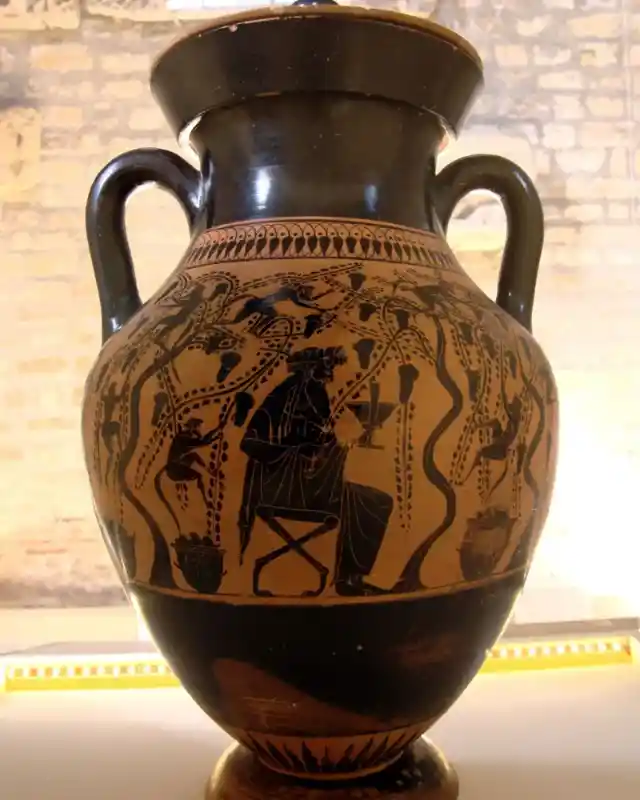
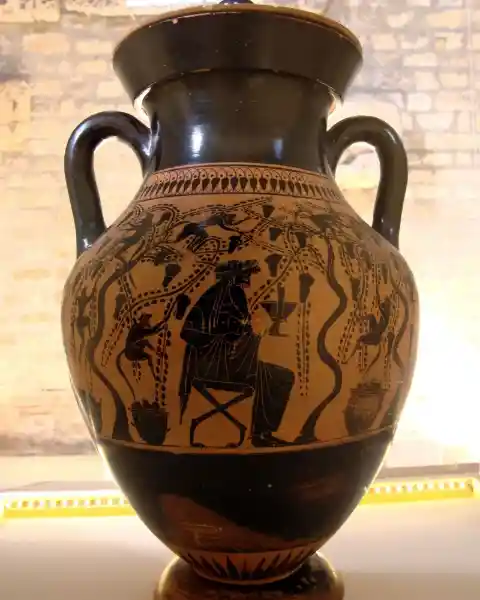
A Large Population Comprised of Slaves
Slaves made up somewhere between 50 and 80 percent of the total population in ancient Greece. As we have mentioned, slaves were frequently transported using salt as the medium of exchange. Ancient Greek slaves had no free will and were entirely the master's property. They were regarded as breathing entities by Aristotle. Wars used to be common, which is why there was such a vast population. According to a research assessment, one of the four people living in Athens in 320 BC was a slave.
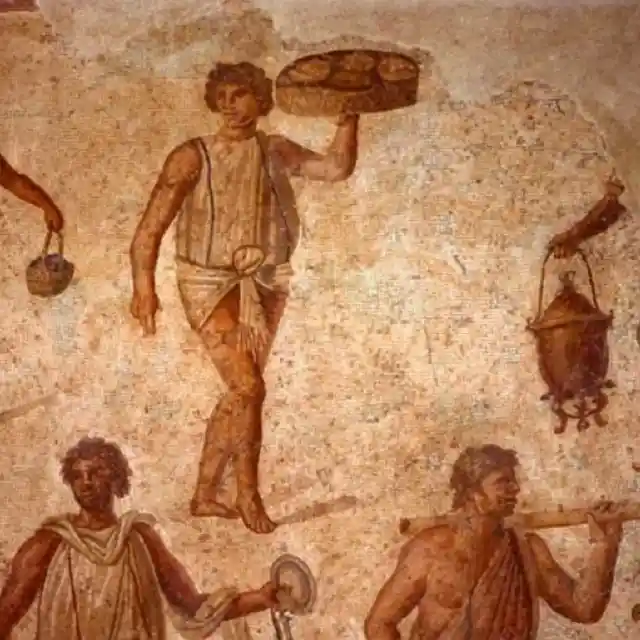
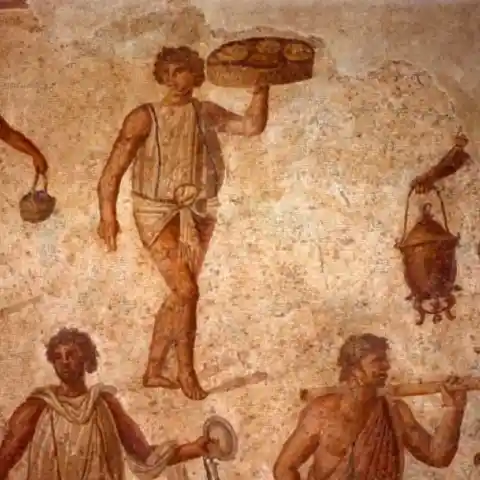
Tricking the Inventor of Brazen Bull
The inventor of the Brazen Bull, Perilaus of Athens, was fooled into serving as the scapegoat. Brazen Bull was basically a hollow statue. Once a guy had entered the bull, the hangman would light a fire beneath it, which would eventually burn that man to death. Phalaris, the king of ancient Greece, punished Perilaus for his invention. He was asked to provide evidence that his idea was effective. He gave in and went into the bull's womb. He was saved just before he was burned to death. He was, however, later thrown from a cliff.
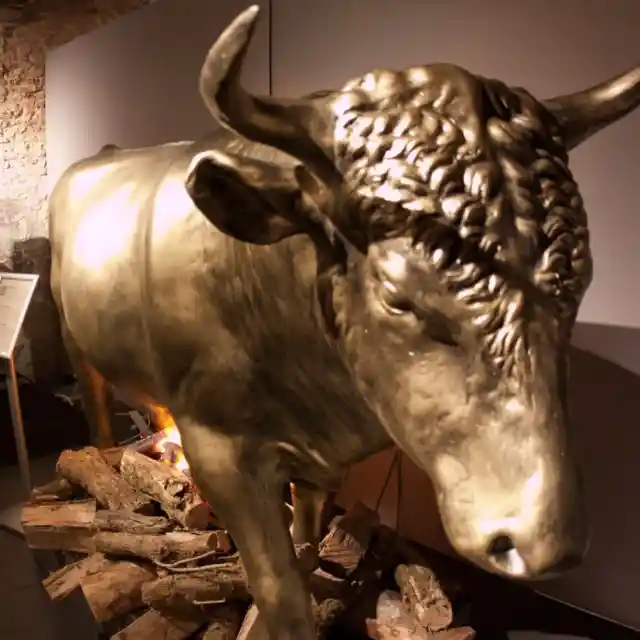

They Invented the Red Carpet
Greece gave rise to the idea of the red carpet. before then, it was called Crimson (a shade of red) Path. Red carpets were thought to be a luxury reserved solely for the gods and not for mankind. A description of the Crimson Path can be found in the antiquated play Agamemnon, the first of the Oresteia trilogy. Ancient Greeks believed that the colour red was holy and challenging to manufacture. The kermes insect's colours were used to make it.

